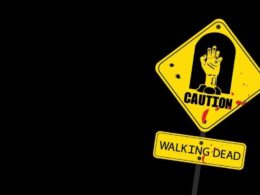Disney is one of the most successful entertainment companies, having produced some of the most iconic TV and film for decades. However, its recent decision to utilize computer-generated imagery (“CGI”) to digitally create dwarfs that will operate as the seven dwarfs in Disney’s latest adaptation of Snow White has been met with widespread criticism.1[1]Sonia Thompson, Did Disney Make the Right Decision About the 7 Dwarfs for ‘Snow White’ Movie?, FORBES (Aug. 22, 2024, 10:37 AM), https://www.forbes.com/sites/soniathompson/2024/08/22/did-disney-make-the-right-decision-about-the-dwarfs-for-snow-white-movie/. The absence of live-action actors representing the seven dwarfs has sparked debate among fans and industry professionals alike, raising concerns about representation and diversity.2[2]Id. By replacing actors with CGI, Disney may be setting a controversial precedent that could face scrutiny under anti-discrimination laws.3[3]Id.
Peter Dinklage, one of the most famous actors with dwarfism, was particularly vocal about Disney’s choice to return to the story of Snow White at all, accusing Disney of being “progressive in one way, but then still making that f**cking backwards story about seven dwarfs living in a cave together.”4[4]4 Zach Sharf, Disney Responds to Peter Dinklage’s ‘Snow White’ Outrage: We’re ‘Consulting With Dwarfism Community,’ VARIETY (Jan. 25, 2022, 12:20 PM), https://variety.com/2022/film/news/disney-responds-peter-dinklage-snow-white-outrage-1235163195/. Dinklage’s comments stem from an interview where he criticized Disney for remaking Snow White while perpetuating what he saw as outdated portrayals of people with dwarfism.5[5]Id. Specifically, he was responding to Disney’s choice to hire a Latina actress to play Snow White and at the same time, recreate a story that reinforces harmful stereotypes.6[6]Id. Disney promptly issued a response to Mr. Dinklage’s criticism, stating that they were “taking a different approach” with the characters and had “consulted with the dwarfism community” to “avoid reinforcing stereotypes from the original animated film.”7[7]Sharf, supra. While Disney’s approach may seem to some like a step in the right direction by attempting to halt the reinforcement of harmful stereotypes about a minority group, many argue that “replacing the characters with computer-generated renderings and declining to cast dwarf actors, who have next to no opportunity in Hollywood,” is not progressive. 8[8]Billy Binion, Replacing the 7 Dwarfs in Snow White with CGI Is Not ‘Progressive,’ REASON (Aug. 12, 2024, 5:30 PM), https://reason.com/2024/08/12/replacing-the-7-dwarfs-in-snow-white-with-cgi-is-not-progressive/.
Actors’ Criticisms of CGI Creations
Interestingly enough, some members of the dwarfism community actually blame Mr. Dinklage for the reason why actors with dwarfism were not cast for this film.9[9]Id. Dinklage’s criticism was not explicitly pro-CGI, but it appears Disney responded to the controversy by choosing to use CGI rather than cast actors with dwarfism for the roles.10[10]Id. Terra Jolé, a reality television personality who has dwarfism, explained that she had family members with dwarfism who auditioned for Snow White, and that “instead of listening to an entire community, [the network] is listening to one person.”11[11]Id. Regardless of Mr. Dinklage’s intentions when discussing his views on Disney’s choice to remake the controversial movie, or even Disney’s decision to do so with digitally created characters, the choice to utilize CGI instead of hiring actors with dwarfism raises the question of whether anti-discrimination laws have been violated.12[12]Thompson, supra. By opting for CGI dwarfs, Disney has effectively eliminated the opportunity for actors with dwarfism to be cast in roles historically associated with their physical stature.13[13]Jillian Curwin, Little People Have A Big Problem With Hollywood, BETCHES (July 24, 2023), https://betches.com/willy-wonka-snow-white-dwarfism-representation/.
A similar discussion was had when Timothee Chalamet’s Wonka came out in 2023 and Hugh Grant was cast as an Oompa Loompa.14[14]Id. In Wonka, the “creative team decided to use CGI to transform Hugh’s body so that it appears to be of short stature.”15[15]Id. A member of the dwarfism community spoke out, arguing that Wonka’s director “took a job opportunity away from a little person in an industry where roles for us are often limited, making it nearly impossible to build a career.”16[16]Id. There have been many other Hollywood films including James Cameron’s Avatar and young adult, hit movie, The Fault in Our Stars where CGI has assisted in making nondisabled actors appear disabled.17[17]Crippled Scholar, How Technology Makes it Easier for the Film Industry to Discriminate Against Disabled People, (June 1, 2015), https://crippledscholar.com/2015/06/01/ashow-technology-makes-it-easier-for-the-film-industry-to-discriminate-against-disabled-people/. This has not only taken jobs away from people who actually are disabled, but it also helps to perpetuate misconceptions about people with disabilities, since the actors cannot authentically know what it is like to be disabled.18[18]Id.
Potential Legal Ramifications for Discrimination in Television
According to a summary regarding “authentic representation” in television from 2018, “among network television, 22% of all characters with disabilities were portrayed authentically by an actor with the same disability.”19[19]Dr. Hanna Shaul Bar Nissim & RJ Mitte, Authentic Representation in Television 2018 at 1 (Ruderman Family Foundation, 2020), https://rudermanfoundation.org/white_papers/the-ruderman-white-paper-on-authentic-representation-in-tv/. The Ruderman Foundation, a nonprofit advocating for the full inclusion of people with disabilities, has teamed up with different networks and artists to spread disability awareness and visibility in the entertainment realm and in 2022, CBS launched a new talent initiative for performers with disabilities in response to the Ruderman family’s efforts.20[20]Michael Schneider, CBS Launches a New Performers With Disabilities Talent Initiative, Tied to Upcoming TV Season, VARIETY (Sept. 8, 2022, 9:00 AM), https://variety.com/2022/tv/news/cbs-performers-with-disabilities-talent-initiative-1235364590/. The plan is to ensure that CBS’s programming includes genuine representation and “inclusion for all underrepresented groups,” including actors with disabilities, in key roles such as series regulars, co-stars in current shows and pilots, whether the characters are written to have a disability or not.21[21]Id. The issue of able-bodied people playing characters with disabilities is wide-reaching and “diminishes the number of roles available for actors with those disabilities.”22[22]Kira Patterson, Note, Affirmative Acting: The Role of Law In Casting More Actors With Disabilities (A Note In Five Acts), 96 S. Cal. L. Rev. 483, 491 (2022). Additionally, casting directors oftentimes simply never think “to cast or even consider actors with disabilities for roles that do not specify whether a director is disabled or not.”23[23]Id.
Possible Legal Consequences
Title I of the Americans with Disabilities Act prohibits employers, including entertainment companies, “from discriminating against qualified individuals with disabilities in hiring, firing, advancement, compensation, job training, and terms, conditions, and privileges of employment.”24[24]Americans with Disabilities Act of 1990, 42 U.S.C. § 12101. Casting disabled characters with non-disabled actors has often been seen as discriminatory against qualified disabled actors, a criticism notably raised by Glee fans who opposed Kevin McHale’s casting as Artie Abrams, a wheelchair user, despite Mr. McHale not using a wheelchair in real life.25[25]AMS Vans, ‘Glee’ Actor Kevin McHale Angers Disability Advocates, https://www.amsvans.com/blog/glee-wheelchair-actor-kevin-mchale-angers-disability-advocates, (last visited Nov. 3, 2024). An argument could be that the studios are failing to provide equal employment opportunities to actors with disabilities, thus violating the ADA’s anti-discrimination provisions.26[26]Know the ADA, Breaking Barriers: ADA’s Impact on the Entertainment Industry, https://know-the-ada.com/breaking-barriers-adas-impact-on-the-entertainment-industry/, (last visited Nov. 3, 2024). While actual litigation surrounding this issue has been scarce, many advocacy groups and organizations continue to work tirelessly, pushing for stricter enforcement of ADA regulations, fostering collaborations between the entertainment industry and disability organizations, and promoting awareness campaigns to highlight the importance of accessibility inclusivity.”27[27]Id. In an effort to engage in the fight for inclusivity and ADA protection, in May 2024, the “U.S. Access Board traveled to Los Angeles, where members learned about the state of accessibility in the film and television industries.”28[28]Southeast ADA Center, U.S. Access Board Holds Meetings with Members of the Entertainment Industry, (May 9, 2024), https://adasoutheast.org/u-s-access-board-holds-meetings-with-members-of-the-entertainment-industry/ The Board met with many different entertainment industry representatives, learning about “authentic casting and writers with disabilities telling authentic stories,” and discussing “increased and ongoing educational resources in the industry about working with professionals with disabilities.”29[29]Id.
Although there has yet to be actual litigation related to the issues with Snow White’s use of CGI-generated dwarfs, McDonnell Douglas Corp. v. Green could serve as a reasonable starting point for members of the dwarfism community arguing that non-dwarf actors and the studios are taking jobs away from them.30[30]30 McDonnell Douglas Corp. v. Green., 411 U.S. 792 (1973). McDonnell Douglas Corp. established that if an employer identifies some non-discriminatory reason to justify an action taken against an employee, the employee may demonstrate the employer’s stated reason is merely pretext for actual discrimination.31[31]Id.Additionally, Maxwell v. N.W. Ayer, Inc. is helpful in understanding the ramifications of disability discrimination in the entertainment industry.32[32]Maxwell v. N.W. Ayer, Inc., 605 N.Y.S.2d 174 (Sup. Ct. 1993). In Maxwell, the Plaintiff alleged, among other issues, that he was discriminated against and not hired for a specific role that he had previously played because the Defendant “was prejudiced against people in wheelchairs” and continued with an example of the Defendant’s discrimination and prejudice.33[33]Id. at 178. The Court denied the Defendant’s motion to dismiss, citing that factual issues related to why the Plaintiff was not rehired made summary judgment inappropriate.34[34]Id. While there is not more information on this case, the Court took a stand against the potential for prejudice and did not let the case fall through the cracks regarding the disability aspect. 35[35]Id.
This issue closely ties into one of the key debates that took place during the summer 2023 SAG-AFTRA strikes, which focused on the use of AI to avoid “hiring and compensating the professionals best equipped for a job.” 36[36]Curwin, supra. The underlying problem here is not just about a lack of roles, but also how people with dwarfism have been historically treated in the entertainment industry. 37[37]Id.Throughout history, people with dwarfism have been objectified, a point emphasized by Dr. Erin Pritchard, a lecturer in disability and education at Liverpool Hope University and an advocate for dwarfism awareness, who noted that they “have often been a popular form of entertainment, not so much for any talents they might have, but due to their distinctive appearance, in particular their small stature.” 38[38]Id.
While Snow White and other films utilizing CGI are just a few examples of ways in which people with dwarfism have been formally excluded from the media landscape, they raise important, larger questions about employment discrimination and representation in the entertainment world. 39[39]Id. By replacing certain roles with CGI, Disney may be diminishing employment opportunities for a marginalized group that already faces significant barriers in the entertainment industry. 40[40]Id. This choice not only reduces visibility for actors with dwarfism but also potentially violates laws designed to protect against discrimination in the workplace, such as the Americans with Disabilities Act (ADA) and other anti-discrimination statutes. 41[41]42 U.S.C. § 12101. Beyond the legal implications, it also brings into focus broader ethical concerns about diversity and inclusion in the media, highlighting the need for more equitable casting practices that reflect the full spectrum of human experiences and identities.
Written by Seany Gershen, Brooklyn Law School Class of 2026
30 McDonnell Douglas Corp. v. Green., 411 U.S. 792 (1973).
[31] Id. [32] Maxwell v. N.W. Ayer, Inc., 605 N.Y.S.2d 174 (Sup. Ct. 1993). [33] Id. at 178. [34] Id. [35] Id. [36] Curwin, supra. [37] Id. [38] Id. [39] Id. [40] Id. [41] 42 U.S.C. § 12101.



